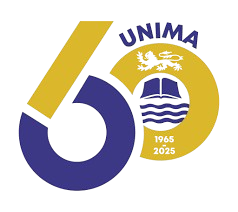LAW FACULTY HOSTS DISABILITY RIGHTS CONFERENCE
Present at the conference were representatives of Disabled People’s Organizations in Malawi which are affiliated to the Federation of Disabled People’s Organization in Malawi (FEDOMA), representatives of education institutions such as the Polytechnic, Stella Maris Girls Secondary School and Mountain View Special Needs School, the Dean of the Faculty of Law at Chancellor College, members of the media and the District Education Manager (DEM) of Blantyre who was also the guest of honour. There was also representation from the media fraternity. The conference was organised with financial support from the Open Society Initiative for Southern Africa (OSISA).
In her welcoming remarks, the Dean of the Law Faculty, Dr Ngeyi Kanyongolo, presented a brief background of the Chancellor College Legal Clinic which operates the Disability Rights Programme. She pointed out that the main aim of the Legal Clinic is to instil social justice. The Legal Clinic has three components: Teaching and Research, Outreach and the Clinic Proper. She also highlighted the successes of the Legal Clinic and its contribution to the Faculty of Law at Chancellor College through research projects.
The Executive Director of the FEDOMA, Mr Action Amos, gave the opening speech, in which he acknowledged the positive change of the mind-set of the people of Malawi towards persons with disabilities. He attributed this to the legal regime and the work of civil society organisations in Malawi. He recognised inclusive education as a key to development of the society through the attainment of education and economic stability.
Also present at the function was the District Education Manager (DEM) of Blantyre, Mrs Evelyn Njima, who thanking the organizers for inviting her to attend the conference as the guest of honour. She conceded the fact that many children with disabilities fail to access education due to some barriers in the education system and that the number of specialist teachers is too small. However, she was also quick to point out that the government is committed to training specialist teachers by increasing the funding for this programme. She also pointed out that many learning institutions are currently upgrading their infrastructure by among other things constructing rumps so that the environments can be disability friendly. She commended the efforts rendered by FEDOMA in creating ways of improving rights of persons with disabilities.
Several presentations were made by different individuals who had undertaken research projects in different areas of disability rights. These included Dr Enock Chilemba, who made a presentation on “The Right to Inclusive Education: the Law and Practice”, in which he drew on two case studies in an attempt to identify the applicable law and practice for overcoming legal or policy barriers for the implementation of inclusive education for learners with disabilities in Malawi. Representing researchers in the Chancellor College Disability Rights Programme, Mr Rhodrick Michongwe, a 4th Year Law Student, also made a presentation on “Challenges and Opportunities for Learners with Disabilities in Primary Schools”. Mr Vitumbiko Kumwenda, the current Director of the Special Needs Directorate in the Students Union of Chancellor College, also made a presentation entitled “Inclusive Education in Malawi: A Case of the University of Malawi, Chancellor College”, in which he elaborated some of the challenges that special needs students encounter in the University. Mr Mande, a special needs specialist at Chancellor College also made a presentation entitled “Itinerant Teaching Programme: Its Impact on Inclusive Education”. In his presentation, he talked of the work of the itinerant teachers as involving travelling to schools to provide assistance, transcribing written work from and to braille, advising teachers on how best to meet the needs of the learners with disability in class, instructing learners on the use of visual aids, identifying, assessing, and referring learners. Dr Elizabeth Kamchedzera, made a presentation entitled “Secondary School Teachers’ experiences of Inclusive Education”. Employing the social model of disability, the presenter advocated for the use of inclusive education, under which students are eager to learn and work hard. Ms Tumeliwa Mphepo, a 4th year Economics student at Chancellor College, also made a presentation on the “Challenges in Realising the Right to Education for Persons with Albinism in Malawi”. All of the presentations sparked lively and intense debate among the participants.
The conference was closed by Dr Elizabeth Kamchedzera who thanked all the participants for attending the conference and sharing their ideas and opinions openly with the common intent of improving access to and inclusion in education for persons with disabilities.




